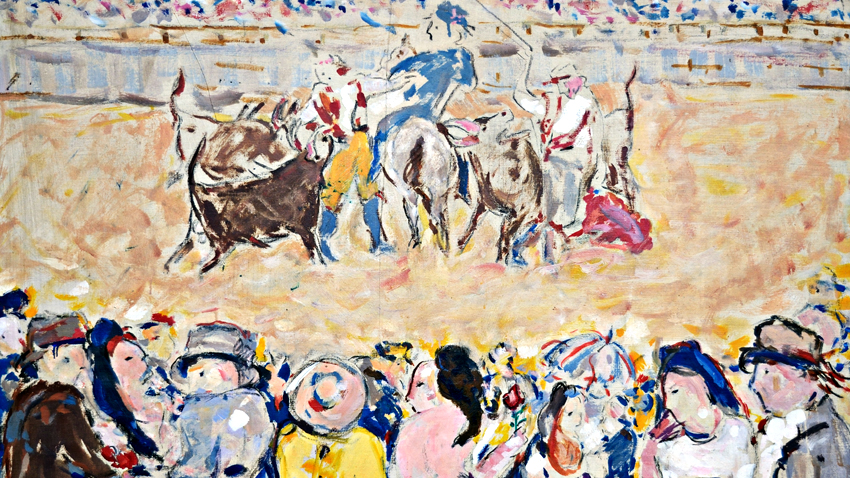Until May 26, 2016 visitors of the Sofia City Gallery can see a project by art expert Krasimir Iliev, entitled “Forms of Resistance /1944-1985/.” The exhibition focuses on the way artists in Bulgaria reacted against the pro- Soviet government of the country after 1944, especially after the state tried to subdue them to its mechanisms and dogmas.
 Trying to impose the realism coming from the Soviet Union the then-authorities accused artists of formalism. The first 12 years of the new regime were especially hard. During that time the system tried to order artists what to draw and how to do it. Thus their art became deformed, no matter if they were accepted or rejected by the propaganda. In the halls of the Sofia City Gallery, one can also see dossiers and protocols that could help us understand this period of the history of Bulgarian art. One can learn about repressions, bans and difficulties artists had in presenting works that showed reality.
Trying to impose the realism coming from the Soviet Union the then-authorities accused artists of formalism. The first 12 years of the new regime were especially hard. During that time the system tried to order artists what to draw and how to do it. Thus their art became deformed, no matter if they were accepted or rejected by the propaganda. In the halls of the Sofia City Gallery, one can also see dossiers and protocols that could help us understand this period of the history of Bulgarian art. One can learn about repressions, bans and difficulties artists had in presenting works that showed reality.
The exhibition includes works by Alexander Zhendov who first confronted the new reality. Visitors can actually see the works of 40 artists who tried to express their inner resistance and suffering from the fact that they had to withdraw from the cultural life of the country and to say goodbye to the audience.
“For example, torn by critics, artist Kiril Petrov retired to his native village, but in this difficult period he reached incredible creative heights,” Krasimir Iliev says.
Vasil Barakov, Iliya Beshkov and even Vladimir Dimitrov aka the Master at some point stopped painting. Boris Denev was banned from working and he started living in the countryside, where he was sketching on small pieces of cardboard. Imprisoned in the Belene camp, Peter Baychev continued to struggle through his art. Hristo Yavashev and Lubomir Dalchev fled abroad. Only Genko Genkov tried to speak publicly against the regime.

In the 1960s, 1970s and 1980s, a gradual easing of the restrictions took place, allowing Zlatyu Boyadzhiev, Galin Malakchiev and Alexander Dyakov to "legalize their rebellion." In 1989 and 1990, even works by Rayko Alexiev and Alexander Dobrinov were shown to the people.
Part of the exhibition is a surreal painting by Ivan Petkov entitled „Lobotomy" that metaphorically examines the attempt of ideology to take away human rights and one’s ability for critical thinking. In a world in which even a bit of colorfulness was blamed of being impressionism, the artists whose works are included in the exhibition try to preserve their originality. People now can see works and documents shedding light on the truth about that period. “Guests often come to the exhibition more than once; watching and pondering,” Krasimir Iliev says.
English: Alexander Markov
Canadian writer of Egyptian origin Eric Chacour is a quest of Radio Bulgaria during his visit to Sofia as one of the visiting speakers during the Month of Francophonie organized by the French Institute in Bulgaria . His award-winning debut novel Ce..
The upcoming exhibition of Bulgarian artist George Papazoff in Zagreb on 5 May 2025 was the focus of a meeting at the Bulgarian Embassy in the Croatian capital. The discussion brought together Diana Glasnova, Secretary General of the..
The Sofia Opera has been invited to open the opera season in Salerno, Italy on April 11 and 13 with a performance of the second part of Richard Wagner's tetralogy Der Ring des Nibelungen (The Ring of the Nibelung) - Die Walkure (The Valkyrie). This..
Canadian writer of Egyptian origin Eric Chacour is a quest of Radio Bulgaria during his visit to Sofia as one of the visiting speakers during the Month..

+359 2 9336 661
